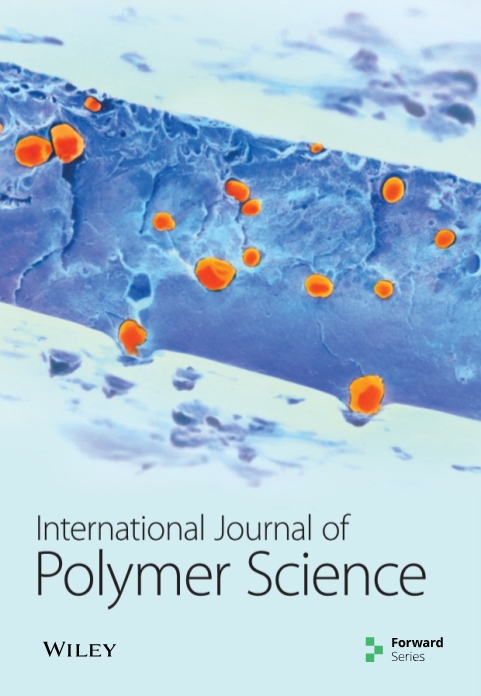包装用普鲁兰羧甲基纤维素共混膜的研制与表征
IF 4.4
4区 化学
Q2 POLYMER SCIENCE
引用次数: 2
摘要
食用包装材料在制药工业中有着广泛的应用。在本研究中,研究了一种基于普鲁兰(PUL)和羧甲基纤维素(CMC)的新型食用膜的物理、热、颜色、机械和防水性能。采用溶液浇铸法,用3 g总固体含量。使用以下百分比100/0、75/25、50/50、25/75和0/100来制备膜。利用傅立叶变换红外光谱(FTIR)、X射线衍射(XRD)、扫描电子显微镜(SEM)和热重分析(TGA)分析了PUL与CMC之间的相互作用。在PUL的75/25%的水平上,CMC膜显示出最低的EAB%(5.55%),TS的最高值(17.30 MPa),WVP值(4.12×10−10 g m-1s-1Pa-1),水接触角为63.43°。随着CMC浓度的增加,共混膜呈微绿色和淡黄色,但呈现透明,具有紫外线阻挡能力。本研究表明,75/25(PUL/CMC)共混膜具有良好的潜力,可用于生产可食用包装膜,以保护具有有趣规格的药品的质量。本文章由计算机程序翻译,如有差异,请以英文原文为准。
Development and Characterization of Pullulan-Carboxymethyl Cellulose Blend Film for Packaging Applications
Edible packaging materials have widespread applications in pharmaceutical industries. In this study, the physical, thermal, colour, mechanical, and water barrier properties of a novel edible film based on pullulan (PUL) and carboxymethyl cellulose (CMC) were investigated. The blend films were made by the solution casting method with 3 g of total solid content. The following percentages of 100/0, 75/25, 50/50, 25/75, and 0/100 were used to prepare the films. Fourier transform infrared (FTIR) spectroscopy, X-ray diffraction (XRD), scanning electron microscopy (SEM), and thermogravimetric analysis (TGA) were used to analyze the interaction between PUL and CMC. At the level of 75/25 percentage of PUL, CMC film showed the lowest EAB% (5.55%), the highest values for TS (17.30 MPa), WVP value (
4.12
×
10
−
10
g m-1s-1Pa-1), and water contact angle of 63.43°. By increasing the CMC concentration, blend films became slightly greenish and yellowish but appeared transparent with UV blocking ability. This study reveals that 75/25 (PUL/CMC) blend film has a good potential that can be used in producing edible packaging films to protect the quality of pharmaceutical products with interesting specifications.
求助全文
通过发布文献求助,成功后即可免费获取论文全文。
去求助
来源期刊

International Journal of Polymer Science
POLYMER SCIENCE-
CiteScore
6.10
自引率
0.00%
发文量
55
审稿时长
>12 weeks
期刊介绍:
The International Journal of Polymer Science is a peer-reviewed, Open Access journal that publishes original research articles as well as review articles on the chemistry and physics of macromolecules.
 求助内容:
求助内容: 应助结果提醒方式:
应助结果提醒方式:


